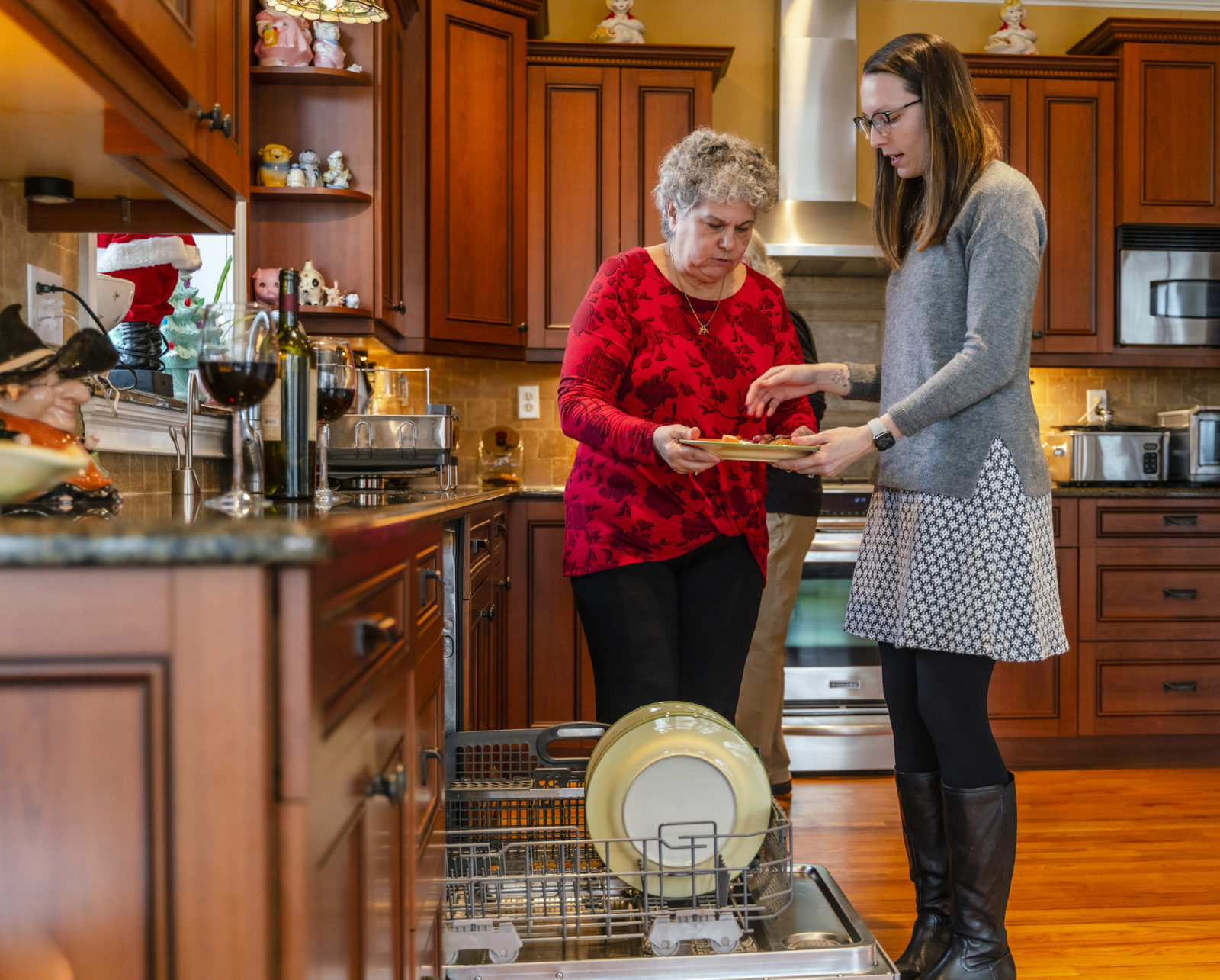Is It Time for Mom and Dad to Move?

Holidays are full of in-person gatherings and celebrations like Christmas and Hanukkah. Families are finally together from around the country—including those who may not have seen their senior loved ones for a long time. While Zoom calls are a great way to stay connected, they don’t always show everything that is going on. And, a lot can change in a senior’s condition over time.
After the festivities, worries might creep in about whether it’s time for parents or other elders to move where more support is possible. After all, family caregivers, neighbors, and community-based services can help individuals age in place, but there are limitations to what realistically can be provided at home.
Here are some questions to ask to determine if assisted living might be a better fit:
Is the home physically safe for your loved one? If there are stairs, can your loved one safely negotiate them? Has your loved one experienced falls in the home? Do they remember to lock doors and secure windows?
Is the home clean and in good repair? Clutter, dirt, or loose boards on the front steps might mean that keeping up the house is getting to be too much for your loved one.
Is mail piling up, and are there unpaid bills? Your loved one may be having trouble managing their financial affairs. Sweepstakes and magazine subscription offers might indicate your loved one is vulnerable to fraud.
Can your loved one get around? If they are still driving, is that safe? If your loved one no longer drives, is there someone who provides regular transportation, or can your loved one ride the bus or access alternative transportation?
Can your loved one manage their health conditions? If your loved one is living with vision loss, hearing problems, arthritis, heart disease, memory problems or other health concerns, do they regularly keep doctor appointments, manage medications and follow the healthcare provider’s instructions?
Does your loved one’s routine include adequate physical activity? Do they spend most of the day on the couch? Lack of exercise leads to a decline in physical, mental and emotional well-being.
Can your loved one prepare nutritious meals, and is it safe for them to cook? Have they lost weight? Be alert for “red flags” such as cupboards full of prepackaged junk food and the stove left on.
Does your loved one spend enough time with others? Do they have opportunities for social connections, even these days? Social isolation can creep up on an older adult, increasing the risk of depression and health problems.
Can your loved one keep up with personal hygiene? Infrequent shaving, bathing and oral care, wearing soiled clothing in need of repair and trouble managing incontinence are signs that your loved one needs help.
Does your loved one seem “not like themself”? Do they seem forgetful or depressed? Are they drinking more alcohol than before?
Are family members confident that the home is a good living choice? Even if your loved one insists they are just fine at home, if family members are fretting and losing sleep at night, that suggests that those concerns should be addressed.
Are there signs of “caregiver burnout” in their spouse or adult children? If a family member is providing more and more care for your loved one, this could be more difficult as your loved one’s needs change—and even harm the caregiver’s career and health.
If the answers to these questions lead family to conclude that your loved one is no longer safe and healthy living at home, it’s time for a family meeting—with everyone involved, including, or course, your loved one. Many people feel guilt as they wrestle with the decision, but it’s important to recognize it’s a decision about their health and safety—and yours. It’s also important to make the decision before something like a bad fall or other emergency occurs.
Charlesgate has been taking care of our seniors for 50 years, delivering exemplary care to the residents and preserving affordability for those less fortunate. Reach out here to learn more.
The information in this article is not intended to replace the advice of your loved one’s health care provider. With your loved one’s permission, talk to the doctor about ways to keep your loved one safe and well cared for.
Sources: IlluminAge Communication Partners with additional information from Care.com.
![Charlesgate [logo]](https://www.charlesgate.net/wp-content/uploads/sites/218/2016/12/logo-new.png)